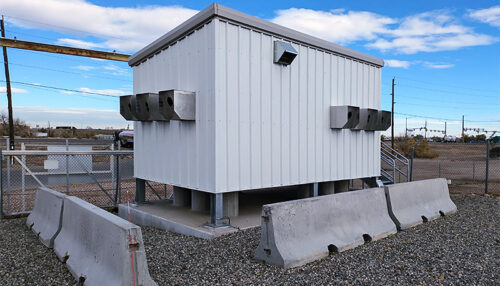
The Energy Leader’s Guide to Reliable Data Quality
October 10, 2025
By: Chris Howard and Andrea Park
For energy leaders, data is both a lifeline and a headache.
Facilities can generate millions, potentially billions of data points across dozens of different reporting systems. Everything from emissions monitoring software to inspection logs. When that data is inaccurate, poorly integrated, or unfinished; it can lead to miscommunication, higher operational costs, regulatory fines and even reputational risk.
The challenge isn’t about collecting data – it’s about ensuring that data is clean, reliable, and usable across the entire organization. By embedding quality checks, accounting for human error, and automating manual processes, organizations can shift from reactive reporting to proactive, confident decision-making. When reference points are properly aligned, data becomes more than an engineering output—it becomes a strategic asset to communicate progress, guide critical business decisions, and demonstrate measurable results to shareholders.
Building a Strong Foundation: Integration and Alignment
The first step to improving data quality is integration. Many organizations juggle 10 or more software systems across their facilities. When reference points aren’t properly aligned, repositories can still contain mismatched data, leading to major inconsistencies. Something as small as switching from annual reporting to monthly reporting can make all the difference.
For example, relying only on annual data may mask important short-term trends, while monthly dashboards can highlight emerging opportunities or risks in real time. In one case, an oil and gas operator introduced monthly GHG tracking after setting an ambitious emissions reduction goal.
By shifting from annual reporting to a monthly dashboard, the team could spot and act on reduction opportunities quickly—ultimately achieving a 58% reduction in methane intensity and a 42% overall reduction in GHG intensity within a single year. This illustrates how consistent alignment across data references, paired with structured processes and leadership support, can deliver measurable impact.
Centralizing incoming data through a system like ACTS helps streamline this complexity. By aligning information from multiple sources, leaders gain a clear, consistent picture of operations. The result is improved workflow efficiency, faster reporting, and fewer compliance headaches.
Anticipating Human Error
Even the most experienced teams make mistakes. Mis-keyed numbers (or site names) overlooked data entries, or mismatched records can ripple across reports. The key is to build systems that anticipate human error rather than react to it after the fact.
Robust quality assurance (QA) reporting can flag anomalies, highlight outliers, and correct mismatches before they become costly problems. For example, data spikes that don’t align with historical trends can be automatically flagged, allowing teams to investigate before a minor error becomes a compliance violation.
The Risks and Rewards of Outliers
Data outliers are more than just statistical quirks—they can carry major implications. A misreported value might trigger regulatory fines or misrepresent emissions levels, potentially damaging a company’s reputation and straining its “social license to operate.”
But outliers aren’t always bad news. When tracked and understood properly, they can reveal meaningful shifts, such as early warning signs of equipment inefficiency or opportunities for cost savings. Defining what “normal” looks like for your organization ensures teams can distinguish between mistakes and actionable insights.
Automating for Efficiency and Collaboration
Many organizations still rely on spreadsheets for critical tasks like inspection schedules or compliance tracking. This manual approach is not only time-consuming but also prone to oversight. By automating processes, such as scheduling inspections or generating live compliance reports, leaders can free up teams to focus on higher-value work.
Automation also creates opportunities for collaboration. In one case, different contractors within the same organization tracked hydrogen sulfide (H2S) emissions independently, leading to duplication and unnecessary costs. By consolidating and automating reporting, the company saved $6,000 while also reducing their environmental impact.
Continuous Improvement Through Review and Training
Improving data quality isn’t a one-time project; it’s an ongoing discipline. Periodic reviews of processes and data ensure that quality remains high as operations evolve. Team training also plays a critical role, giving employees the knowledge to input, manage, and interpret data correctly.
When cross-functional teams work together to align motivations and priorities, the benefits multiply. Trend awareness improves, automated processes scale more effectively, and cost savings are realized across the organization.
Key Takeaways and Next Steps
Strong data quality practices that are rooted in integration, error anticipation, automation, and continuous review are essential for energy and industrial leaders who want to reduce risk and unlock smarter decision-making.
At Montrose, we help energy and industrial leaders achieve strong and continuous integrated data practices. By anticipating errors, automating processes, and aligning teams around reliable systems, we turn data management into a driver of cost savings, operational performance, and environmental impact.
Partner with Montrose to align your data goals and transform raw information into measurable business value.
Continue Reading
 Chris Howard
Chris Howard
Principal Engineer
Chris, a licensed Professional Engineer in Colorado, has over 18 years of oil and gas experience in EHS systems and air quality permitting and compliance. He has led award-winning digital transformation projects, driving significant reductions in methane and greenhouse gas emissions. Chris has deep expertise in EPA and Colorado permitting, emissions calculations, consent decrees, and regulatory reporting. He has managed complex ACTS integrations, built GHG KPI reporting frameworks, and streamlined compliance processes.
 Andrea Park
Andrea Park
Senior Project Manager
Andrea has 16 years of experience leading oil and gas projects across multiple states and disciplines, leveraging diverse data analytics tools. She partners with teams to streamline processes and ensure successful permitting, compliance, and reporting operations. Andrea has also guided key data governance decisions during mergers and major database implementations.




